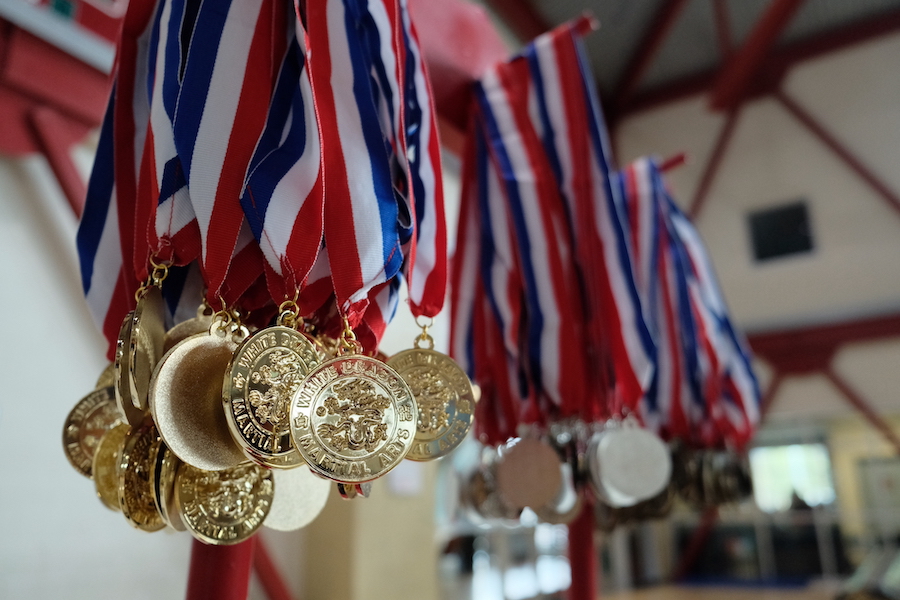Unlike the average karate or Tae Kwon Do school, many traditional Chinese martial arts schools don’t ask or even encourage their students to compete in tournaments. A fear of looking bad or disgracing the school in front of the competitor schools’ students keeps many Chinese martial art teachers and their students away from tournament competition.
I say “traditional” Chinese martial arts because today’s contemporary wushu from Mainland China places some emphasis on tournament competitions. Wushu itself is a competitive sport in China and much of its training revolves around performing skills.
However, traditional schools and instructors have a more closed-door attitude toward tournaments. Part of that attitude comes from not having much exposure to tournament competitions.
When I was a teenager, we didn’t have an open tournament every weekend and several Chinese tournaments a year to attend like we do today in the San Francisco area. Then, the only tournaments in our area were limited to Japanese stylists. Now, even the smallest cities in the United States are close to tournament action at least every several months.
Most people like to be recognized for their special accomplishments, and we were no different. However, in those days, we had to be content with once-a-year event, such as Chinese New Year, where we performed in a big public demonstration. That single event was the highlight of our training year. Since we could show the world our kung fu accomplishments, we worked hard on our best forms for that one day a year.
Until recently, there were few tournaments in China, Hong Kong, and Taiwan for traditional stylists who might want to test their forms or sparring skills. In the old days, if you learned something well, the only way to test your skills was to go to another school and look for trouble by picking a fight. Naturally, honorable teachers discouraged their students from this practice; consequently, most of their skills were kept within the training hall’s four walls.
Now, the offshoot of traditional Chinese training is that when people go to tournaments, they believe they should compete only if they are among the best. Unfortunately, that attitude misses the real purpose of tournament competition.
While it is true that you must be good to win, you don’t have to be good at your art to improve your skills. Preparing for tournament competition makes you practice hard, put more effort into your training and get more constructive feedback from your instructor. That makes you better at your chosen martial art. Even if you don’t win right away, you benefit greatly from the preparation that goes into your effort.
If you’re lucky enough to start young in tournament competitions, you will grow up with a lot of friends who started with you. Even if you don’t at first win trophies, you still have fun with other competitors from your school and other schools.
Sometimes when people go to a few tournaments and don’t win, they get discouraged and give up. I emphasize to my own students that it’s good to gradually work their way up the ladder, although it may take a while before they start winning. That way they develop an improvement habit.
A good example are those talented individuals who win big at their first few tournaments and think they’ve reached the top. Not seeing any more achievement challenges and fearing eventual defeat from another competitor, they retire after a year or so. Unfortunately, their martial art ability often stops improving about the same time they retire from the limelight. Working your way to the top often makes you appreciate it enough to keep on improving your skills.
It’s true that winning is fun. However, you shouldn’t attach too much importance to winning. The real importance of tournament competition is using it as a vehicle to push yourself into working harder at your martial art.
Don’t get discouraged or depressed if you don’t win. If you keep trying, you will eventually be a winner. Remember, some of America’s greatest people stumbled many times on the road to success. What made them great was that they learned from their experiences and never gave up.
This article originally appeared in the February 1991 issue of Inside Kung Fu Magazine, “Training for Life” by Grandmaster Doc-Fai Wong.




1 thoughts on “Using Tournament Time”
Short, sweet, and to the point. Loved it!